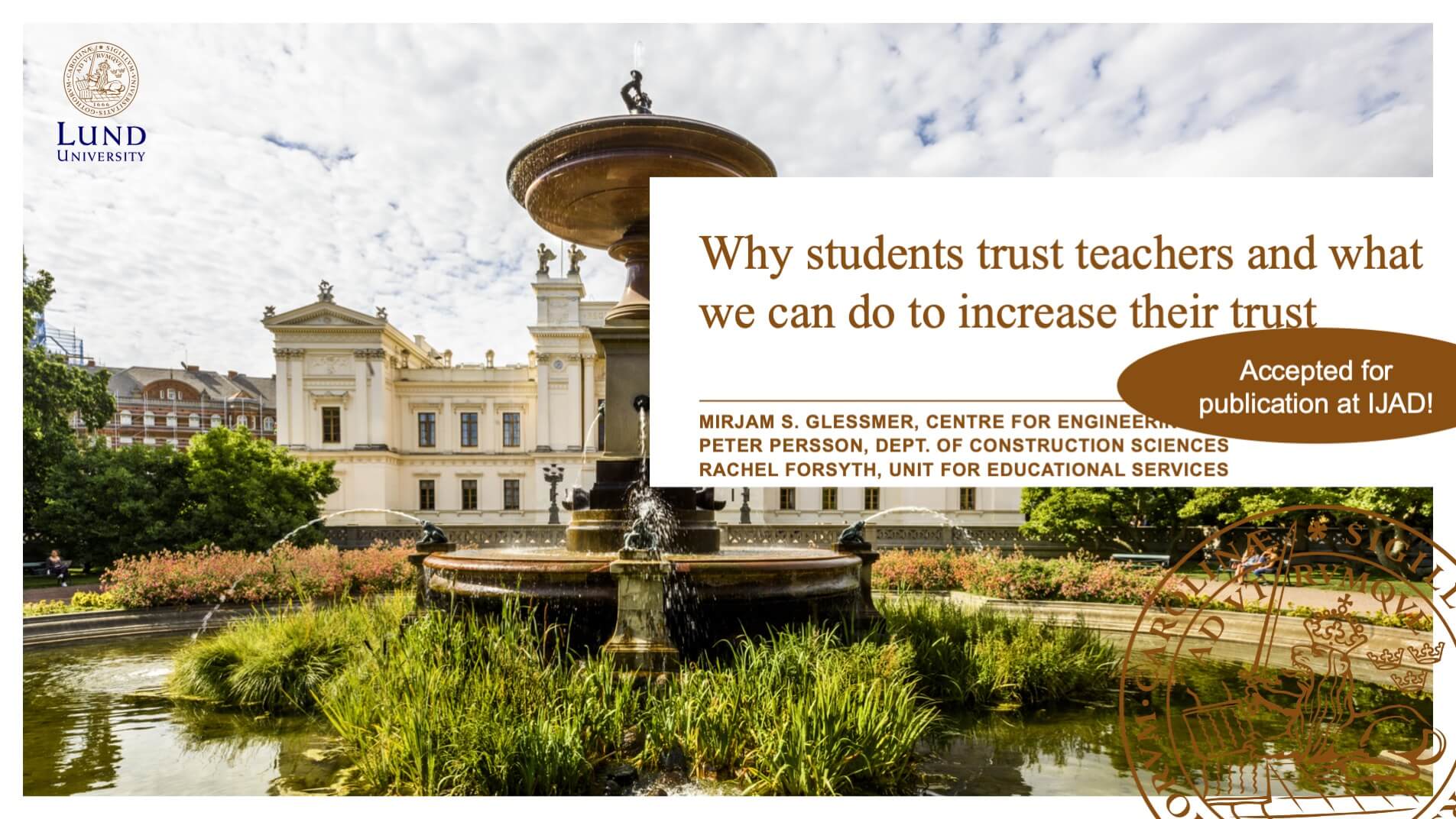
“Why students trust teachers, and what we can do to increase their trust”. Keynote at the Lund University conference on inclusive teaching, with Rachel Forsyth and Peter Persson
Yesterday, I had the pleasure of giving a keynote at the “Inclusive Lund University” conference, together with my colleagues Rachel Forsyth and Peter Persson. We talked about our recent study (that has been accepted for publication in IJAD, woohoo!) on what makes students trust teachers, and what that means for us as teachers.
The history of how we started out working together is really related to the trust topic. Rachel was working on a study where they interviewed teachers about what the teachers do to build trust with students (read more about the first publication on that study here, but there have been more!), and two of the teachers she interviewed happened to be Peter and myself. Peter and I were also taking a portfolio course together and were each other’s critical friends and writing support with our Excellent Teaching Practitioner portfolios, and we found the topic so interesting that we continued talking with Rachel about it, and the rest is history.
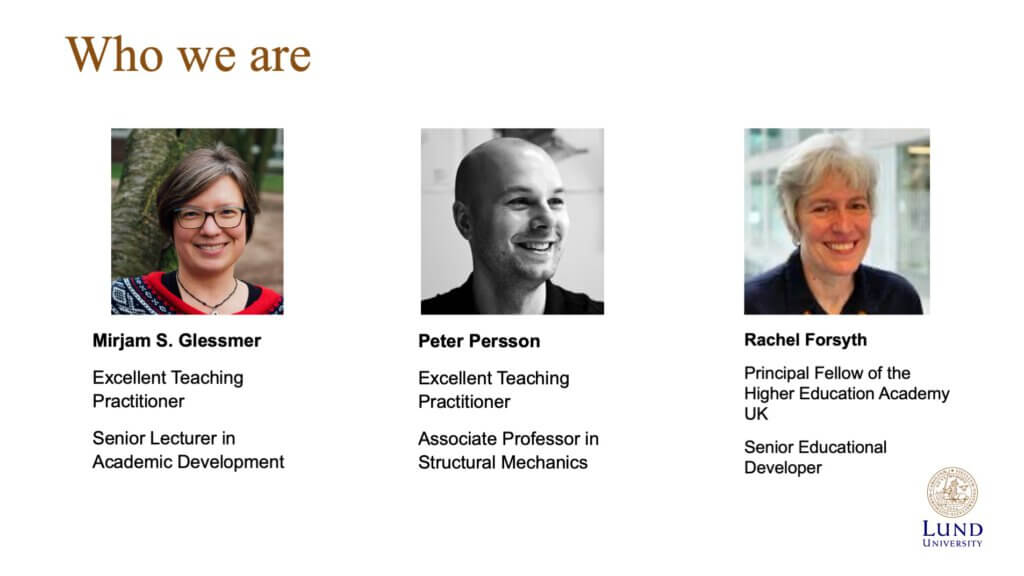
In our experience, therefore, trust is a topic that easily engages people into conversations. We started the presentation with asking the audience to submit their own experiences of trusting a teacher in a menti (see slides below). Many of those responses, as you will see, are very similar to what students also tell us!
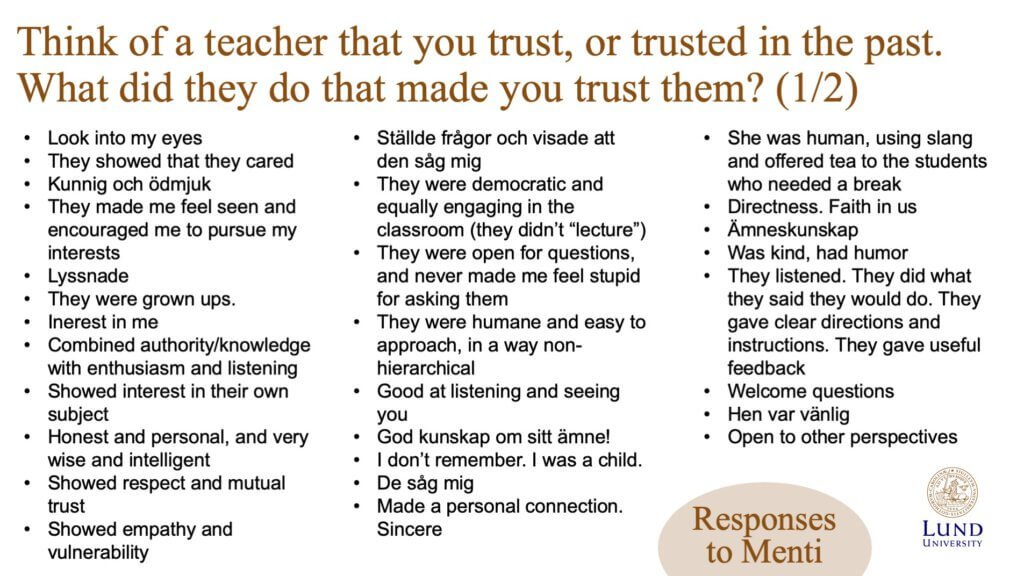
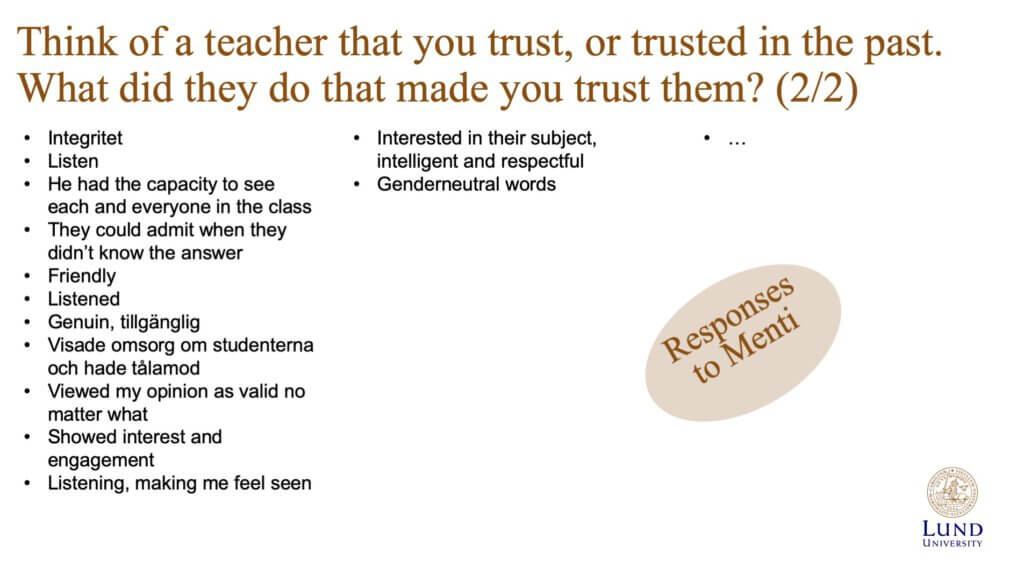
But first, some background. We know that relationships are important for student success, and we know that trust, inclusion, belonging are important in those relationships. We also know that trust is still under-researched.
If you want more information: I have previously written about some (actually, all!) of the research we show on the slide: Felten & Lambert, 2020; Wilcox et al., 2005; Cook-Sather et al., 2021; Hagenauer & Volet, 2014.
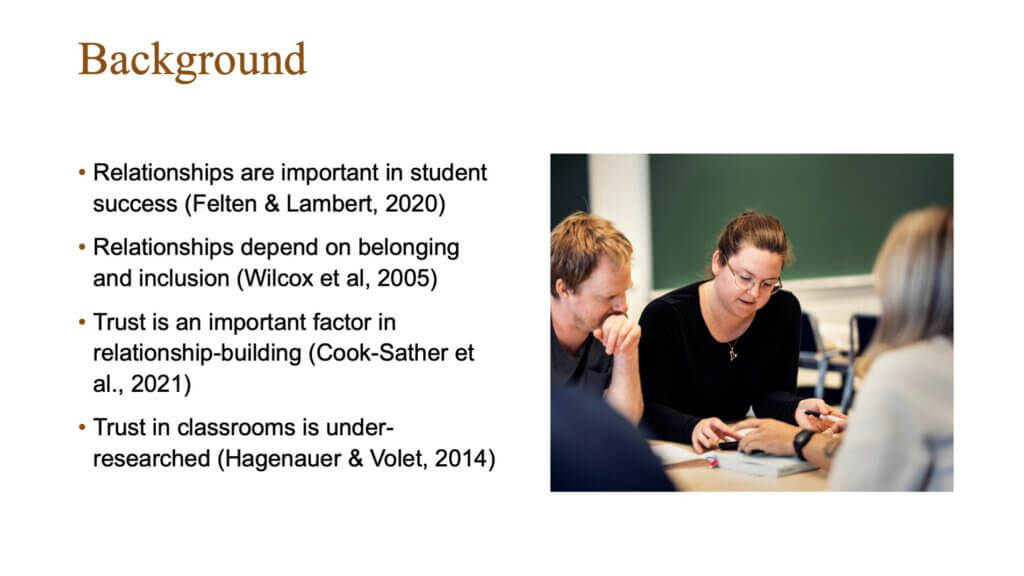
Based on the interview study that Rachel was conducting and that Peter and I were interviewed for, Felten et al., 2023 developed a model of teacher-initiated trust moves (although I believe that Peter’s and my data was not included in this specific publication). Anyway, Felten et al. (2023) find that they can categorise the things that teachers report doing in order to build trust into four dimensions: Cognition (“does the teacher show knowledge, skills, and competence?”), affect (“Does the teacher show interpersonal care and concern?”), identity (“Does the teacher show sensitivity to their own and/or others’ identities?”), and values (“Does the teacher show that they are acting on principle?”).
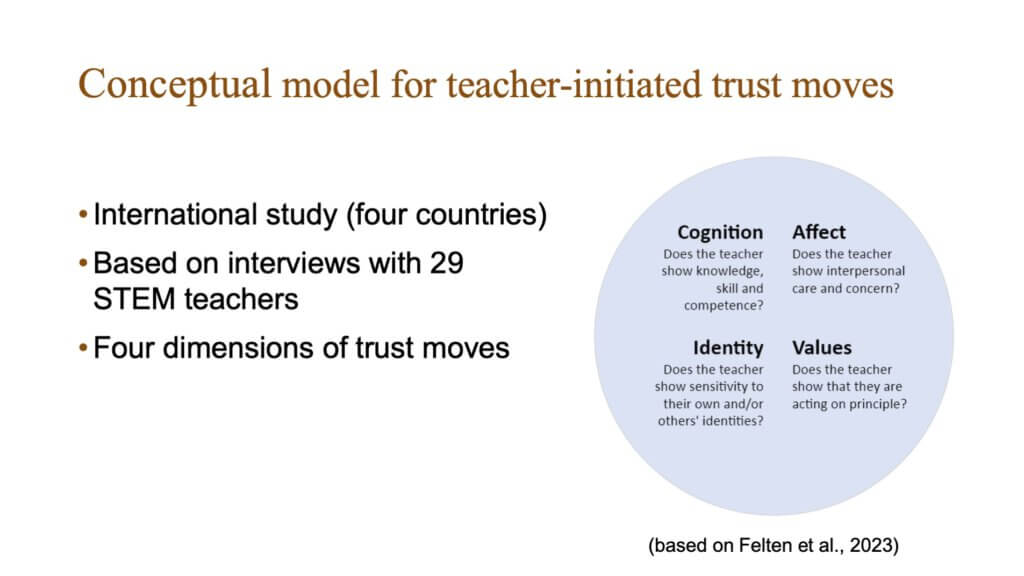
It is really interesting to think about what teachers do in order to build trust, but Peter, Rachel and I started wondering if what teachers think helps build trust is actually what students think, too. We therefore did our own study within the context of the Faculty of Engineering at Lund University.
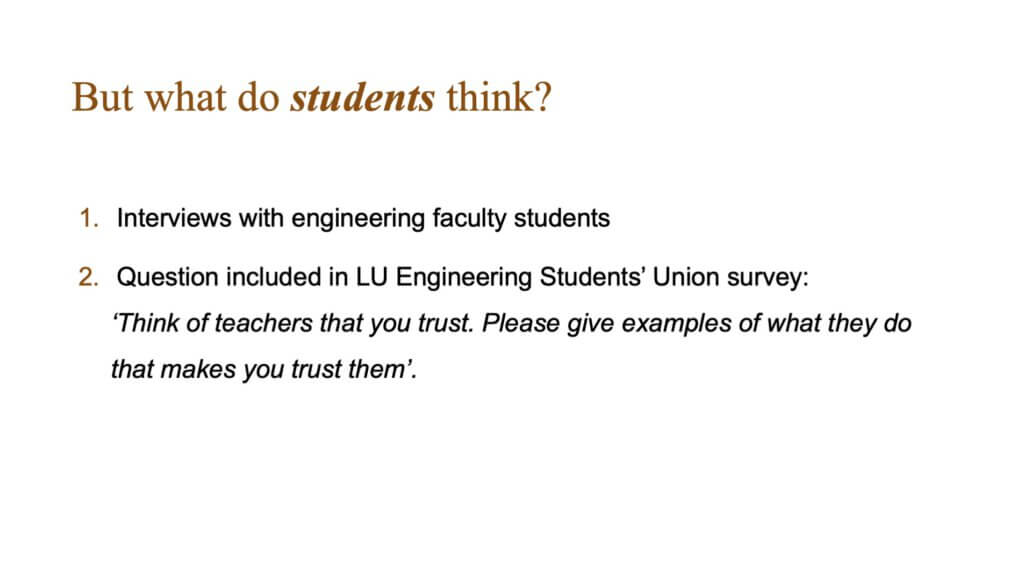
We have published some of the interview findings in conference proceedings last year already (see here). In a nutshell: Students say that trust is important, and that they generally trust their teachers. This is both based on the actual experiences they have with teachers where they describe things that make them trust their teachers (mostly in the affect and cognition categories) but also based on a large trust in the system: If teachers are employed at LTH, they have already been screened and approved, so it is easy to trust that they will do a good job as a teacher. The focus is mostly on a relationship between someone in their role as a student and the teacher in their role as a teacher, not on personal relationships.
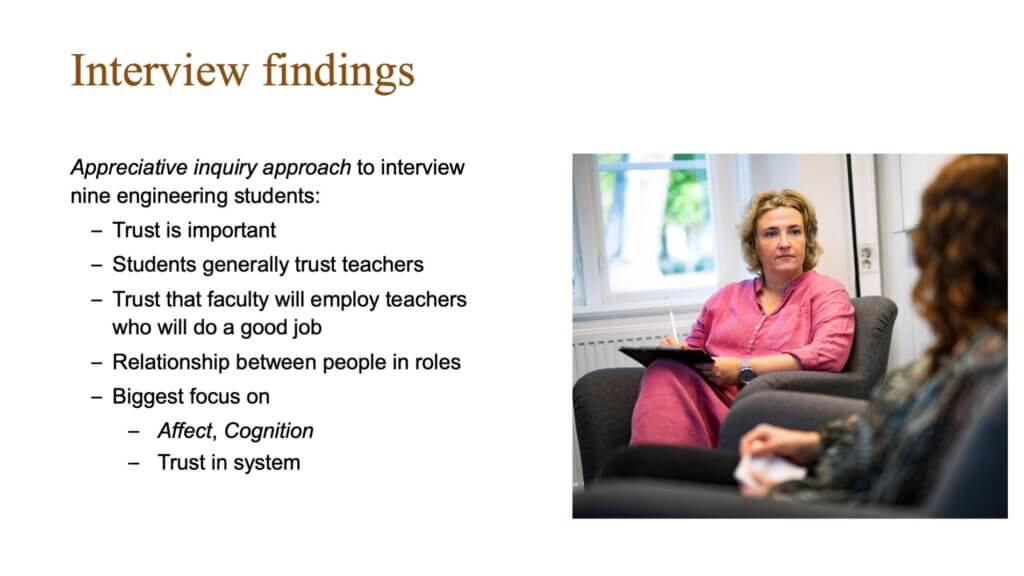
It is always interesting to see how students talk about things, so here are two quotes below. Note: We are using pseudonyms to protect students’ identities.
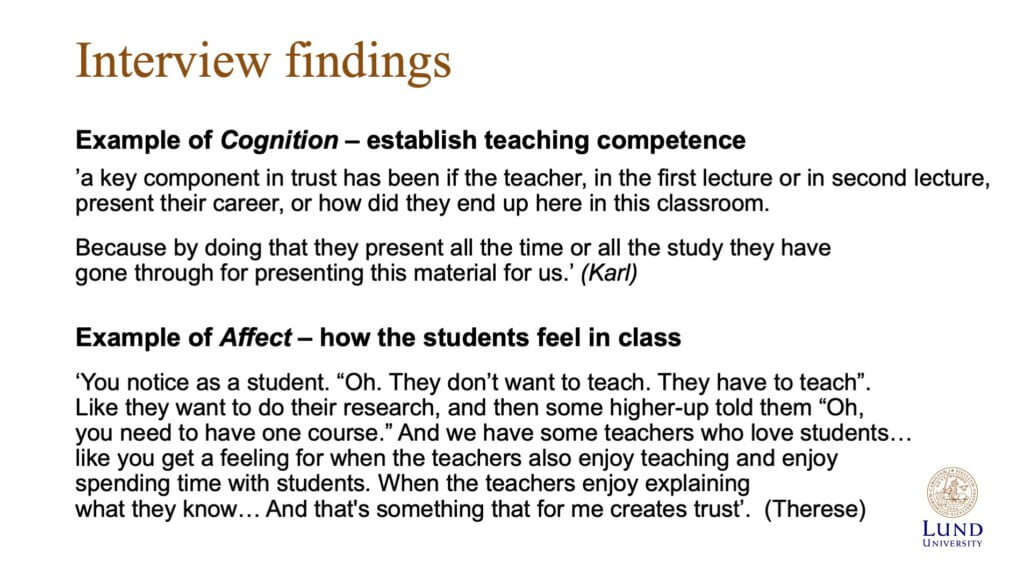
Since trust is such an engaging topic, a really cool thing happened: One of the students I was interviewing knew someone who knew someone who was involved in preparing a survey that the student union was about to send out. So we got a chance to ask a question on the survey: “Think of a teacher that you trust. What do they do that makes you trust them?”.
Looking at a word cloud already gives us a first glimpse into the results: The really commonly used words are some forms of asking, listening, and responding! And, interestingly, a new-to-me word: “att dumförklara”, meaning something like condescendingly talking down on someone in a way that makes them feel dumb. This is interesting to note also because we had explicitly asked for positive examples of what builds trust, yet many students responded with just not doing this one thing being what makes them trust a teacher. That is a really low threshold!

We were lucky that students gave us really a lot of great responses. Out of 477 students who answered the survey, 476 filled in the free-text field for our question! That is an extremely high response rate for a free text question in my experience. And many of the answers were quite long, too. See two examples below.
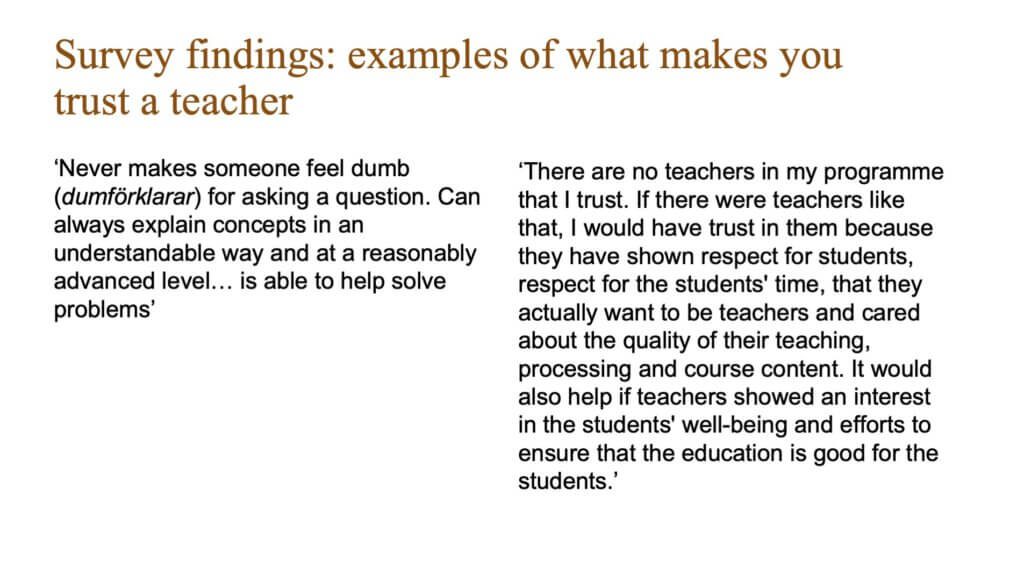
When we code the examples following Felten et al. (2023)‘s categories, we find that 2 out of 3 responses contain something related to the teacher showing interpersonal care and concern. This makes affect the category that is mentioned most often, closely followed by cognition. Here, however, it is interesting that there are two distinct ways in which cognition becomes important: 3 out of 4 cognition answers are actually about teaching skills, and only 1 in 4 about subject knowledge. This is interesting because we know that for people early in their teaching career, there is a huuuge focus on subject knowledge and a lot of fear around being found out as an impostor who should not be teaching on the subject, when in reality students value other things a lot more. (Funny situation during the presentation, though: I was talking about how great it is that many of the teaching skills that students report make them trust their teacher can actually be learnt, like not reading things off a powerpoint — which I was reading off a powerpoint in a tiiiiny font due to the way we had set the presenter view on a too small screen. Anyway, that got me a good laugh…)
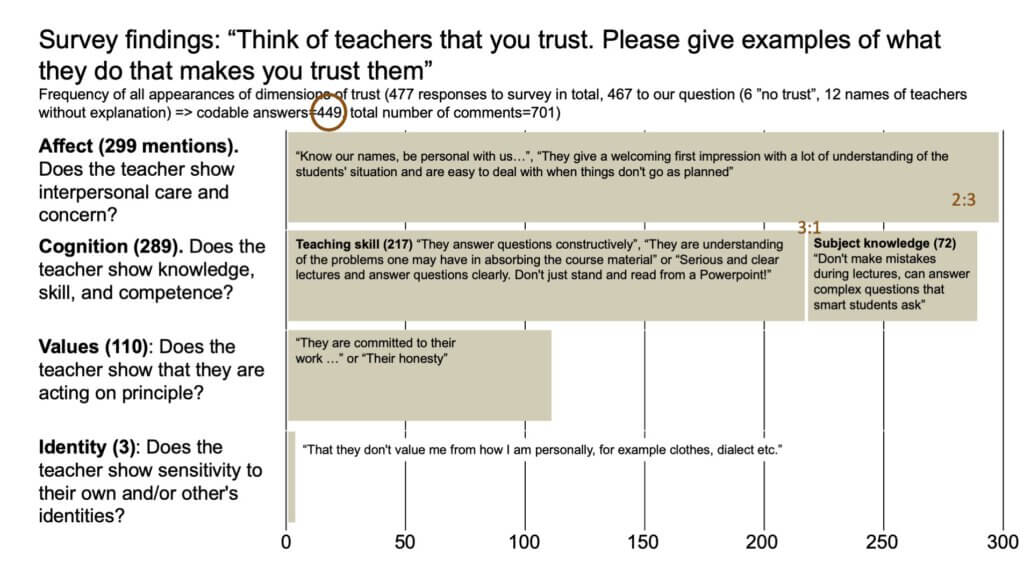
The other two categories are mentioned a lot less often in comparison, and especially identity is really almost non-existent. We can only speculate about why that might be the case (Culture in Sweden? Culture in a faculty of engineering? Maybe students have never seen positive examples of what it could look like? Who knows, but interesting to note, and it will be interesting to see results of the repeat studies currently happening in several other places).
What we noticed during the interviews was that students were really not used to talk about trust, and that their thoughts sharpened over the 45 or so minutes we talked with them. Below an example of a student who first focussed on cognition but then reconsidered and focussed on affect. So maybe the effect of cognition is still overestimated in the survey data, where students did not spend a similar amount of time thinking?
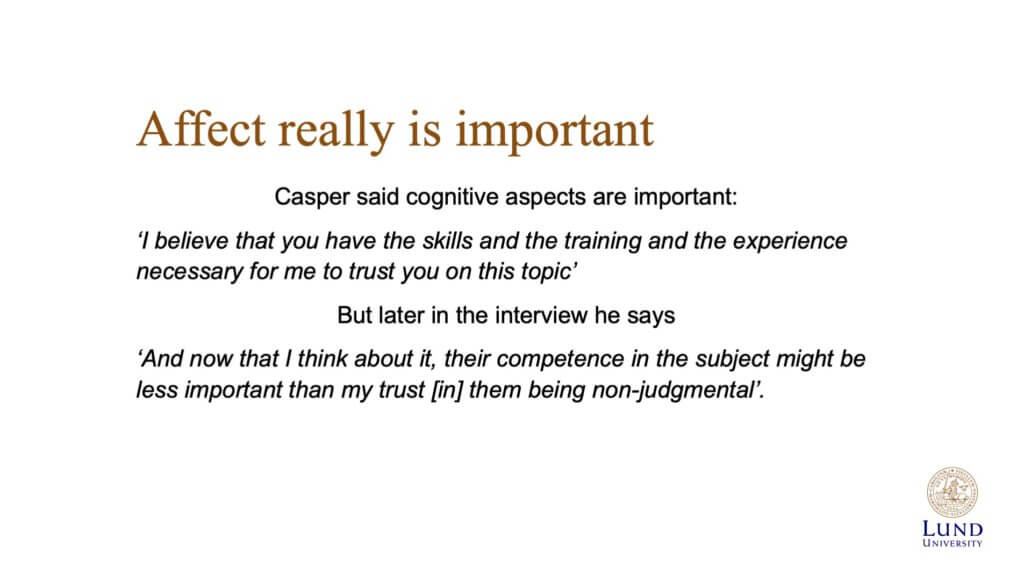
So to summarise our results: We see that students trust teachers who ask, listen, and respond. Students do have clear ideas about who they trust, and it is a topic that they care about a lot and want to talk about. When there is no trust, students do not bother engaging with the teacher and their teaching, and instead just learn for the exam by themselves elsewhere. Also, one thing we did not specifically ask for but that came out very clearly: There is a very high trust in peers and in LTH as an institution.
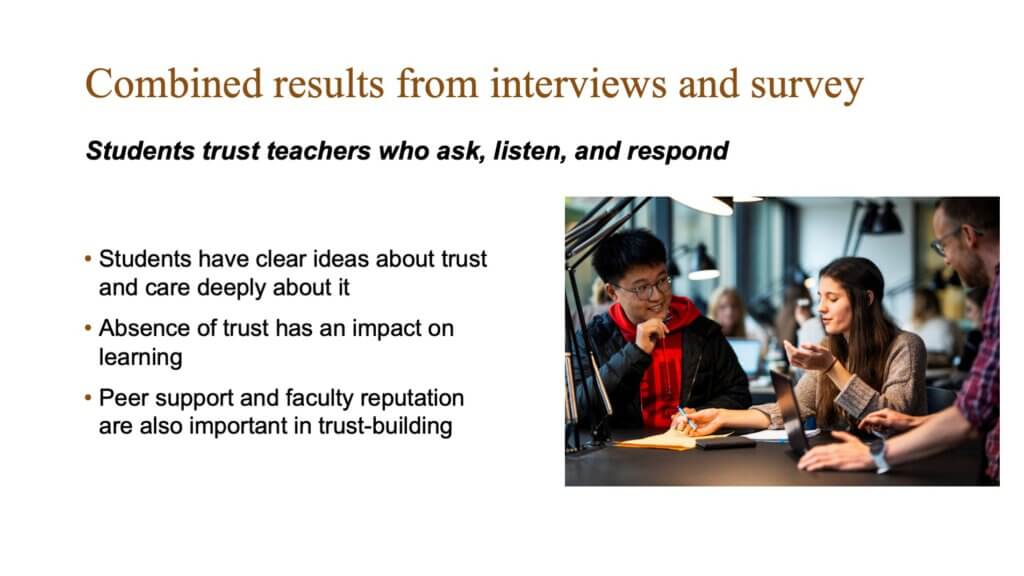
After all of this, we asked participants to submit trust moves that they would recommend or want to try…
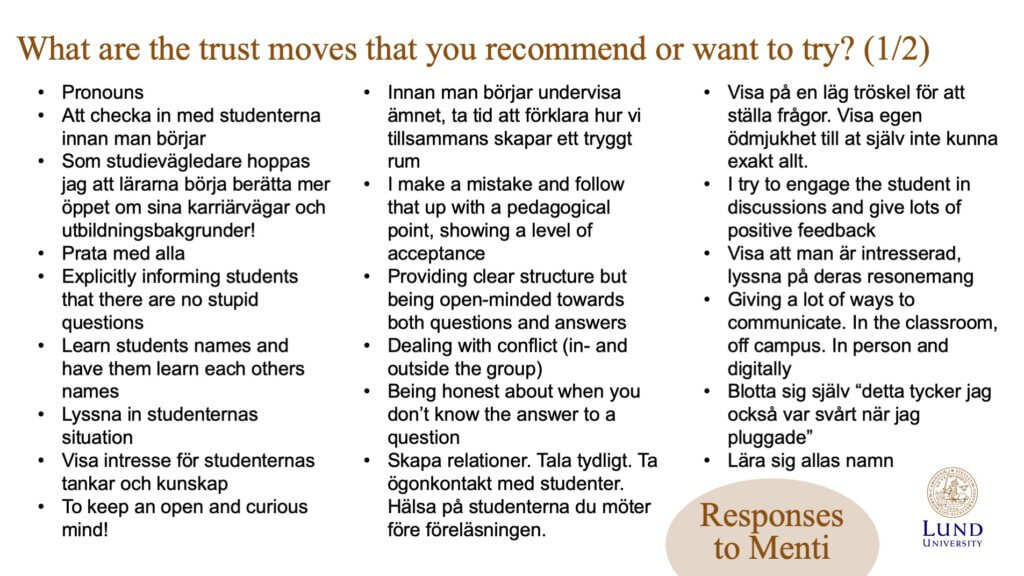
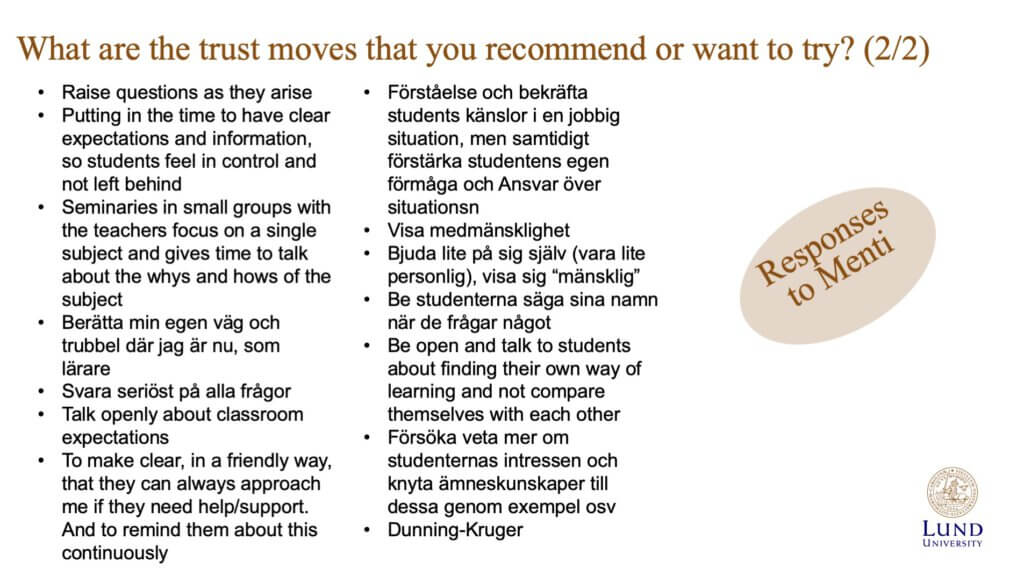
…and we gave our own suggestions in a nutshell.
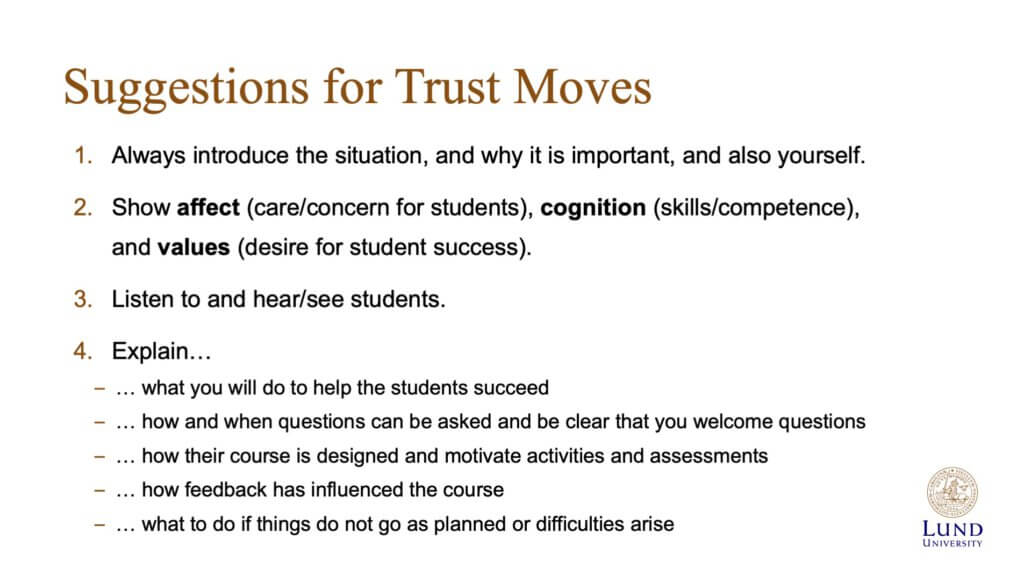 The presentation ended with a discussion about several relevant aspects — how would a teacher even know if they “dumförklara”, make students feel stupid by the way they treat them? Can we actually say there is an influence of trust on student learning? Does it matter how students interpret the term “trust” when we talk about it?
The presentation ended with a discussion about several relevant aspects — how would a teacher even know if they “dumförklara”, make students feel stupid by the way they treat them? Can we actually say there is an influence of trust on student learning? Does it matter how students interpret the term “trust” when we talk about it?
One thing that made me very happy was that later speakers referred back to our presentation throughout the day, and that people came up to us during the break to talk more about trust. So it is clearly a very engaging topic, and I look forward to working on this more in the future!
How do teachers describe what they mean by trust in a teaching context? Currently reading Sutherland et al. (2024) - Adventures in Oceanography and Teaching says:
[…] own work on what makes students trust teachers was inspired by an interview that I did with Rachel Forsyth (in the botanical garden shown in the […]